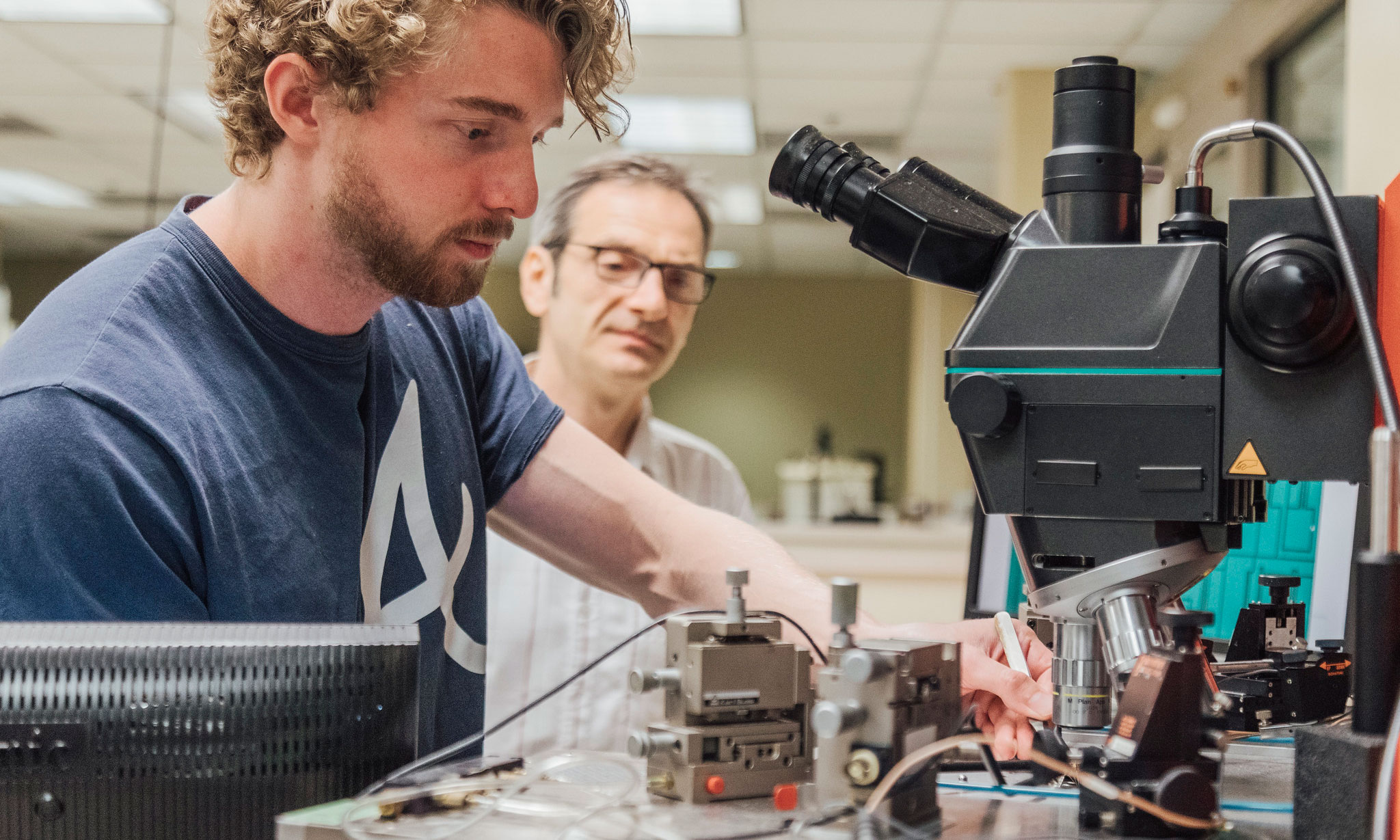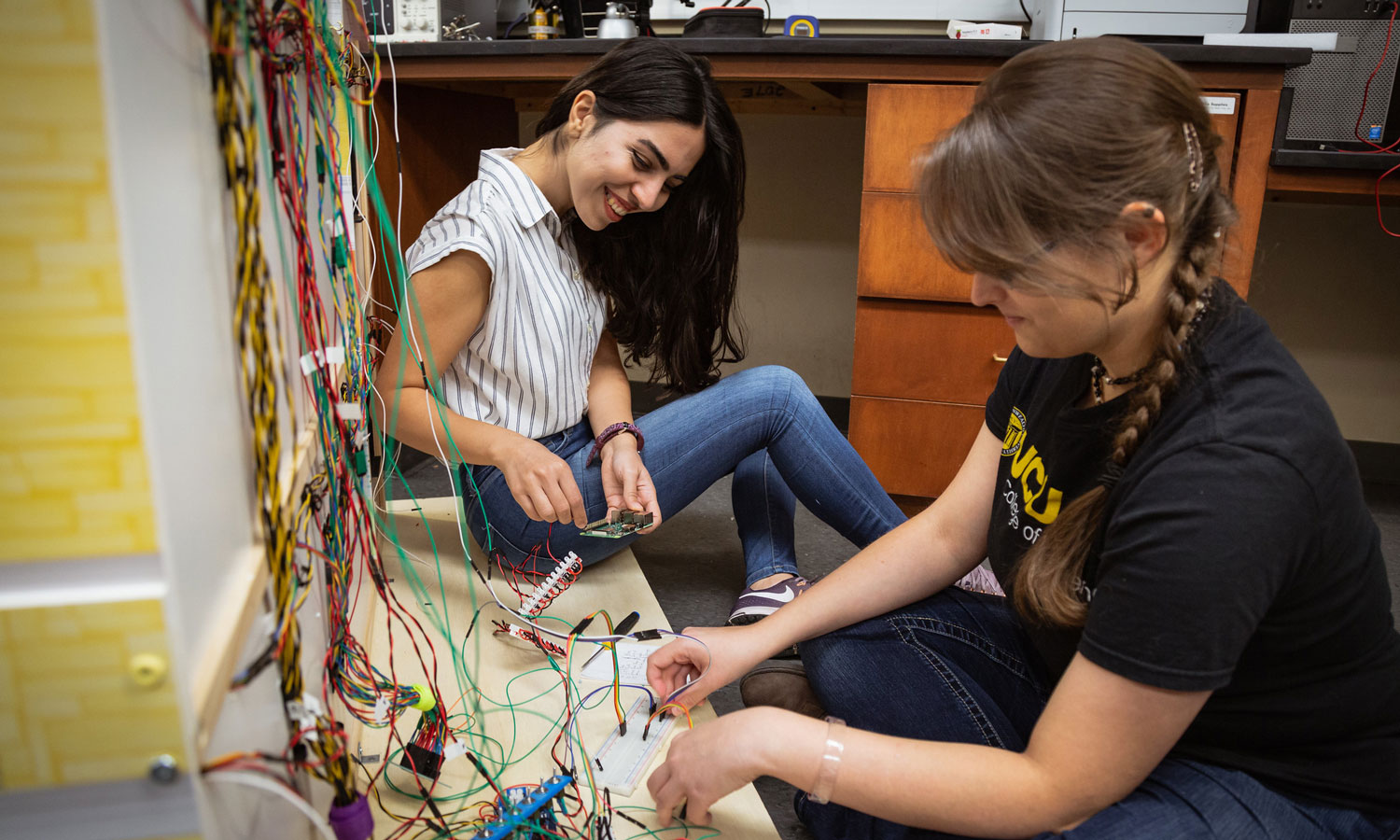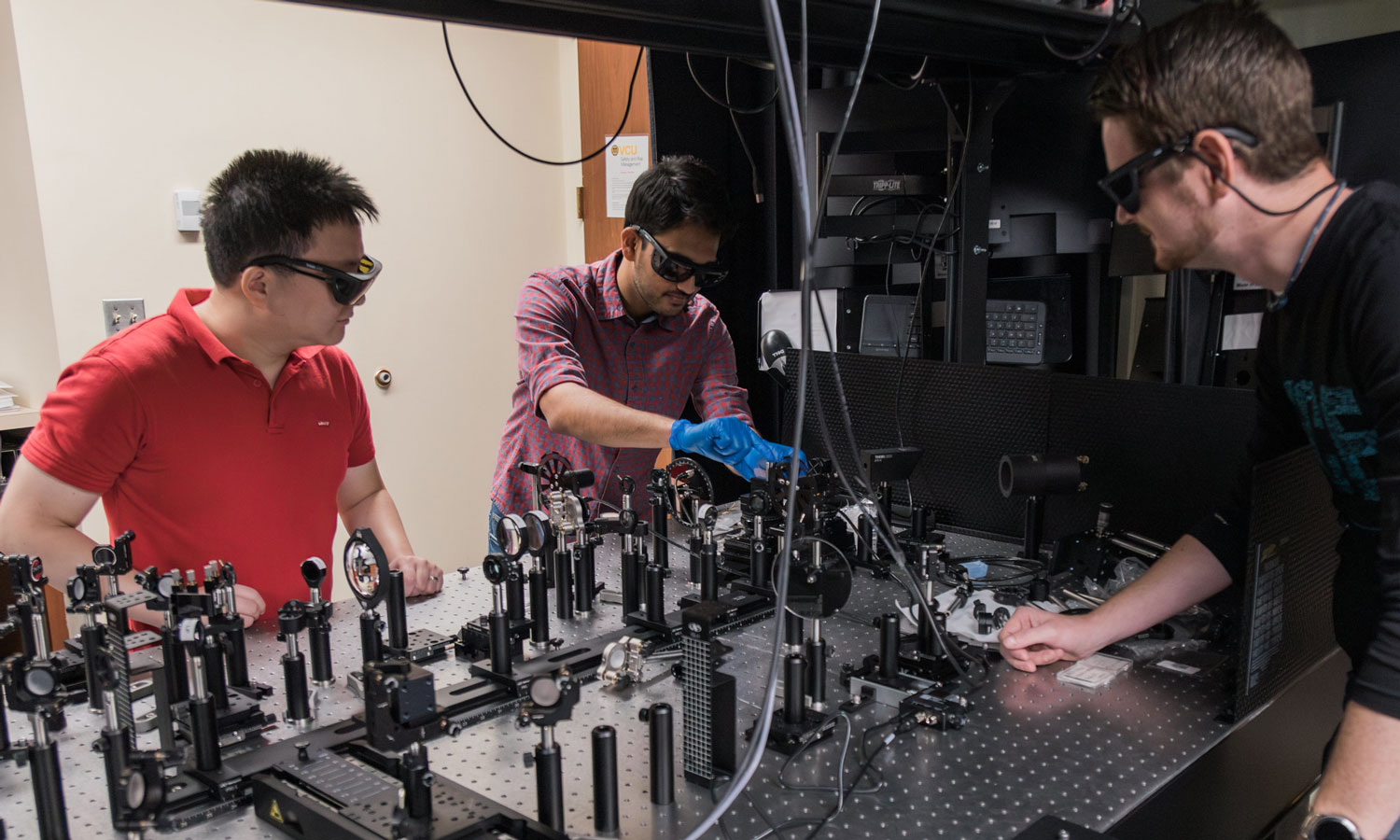Electrical and Computer Engineering Department
Start or continue your academic journey with faculty who are more than just educators. At the VCU College of Engineering, the innovative work we do shapes the changing technological landscape of public and private industry. This expertise translates into opportunities for hands-on learning through labs, undergraduate research, internships or cooperative education programs that enable students to get paid while learning.
Our faculty’s expertise spans a wide range of cutting-edge research areas like:
- Communications
- Computer systems
- Cyber physical systems
- Data analytics
- The Internet of Things (IoT)
- Micro- and nano-electronics
- Semiconductors
Explore the world of electrical and computer engineering through study and observation of fundamental principles powering today's technology. Our curriculum blends deep theoretical knowledge with practical labs that allow you to experiment, design and find solutions to real-world challenges alongside faculty mentors.
Electrical and computer engineering students study a variety of topics like:
- Autonomous systems and controls
- Communication systems
- Electricity
- Electronics
- Electromagnetism
- Embedded systems
- Power systems
- Signal processing
You'll have access to state-of-the-art facilities while at the VCU College of Engineering. These resources are an extension of the classroom and come equipped with the same industry-standard tools you’ll work with after graduation.
For those seeking a challenge while gaining valuable experience, Vertically Integrated Projects (VIP) are collaborative, multi-year ventures that educate students through practical exercises. Work alongside faculty and graduate students on real-world research and development, gaining key professional- and research-oriented skills while contributing to groundbreaking advancements in electrical and computer engineering.
Complex problems, SymPle solutions
Parallel projects run by Electrical and Computer Engineering Professors Carl Elks, Ph.D. and Ümit Özgür, Ph.D. utilize physics-based hardware solutions to challenges where software poses significant security vulnerabilities. These systems will have implementations across industries in high-stake situations, the most prevalent being the nuclear power industry.


Electrical and computer engineering academic programs






Earn a master's degree in less time
The College of Engineering offers accelerated bachelor’s-to-master’s degree programs for all five departments. Students can earn both degrees in a minimum of five years by taking approved graduate-level courses during the senior year of their undergraduate program.
Faculty Research
Our faculty researchers are pioneers who constantly push the boundary of their fields forward. Innovations developed by faculty impact research areas like:
Photonics, micro- and nano-electronics
Imagine the fastest computer you know. Now, imagine something countless times faster, the Department of Electrical and Computer Engineering is laying the groundwork for future technological leaps, like quantum computing. These machines need electricity, so we’re also working to make solar panels more efficient to harness the sun’s bounty of sustainable energy. Advances in computing and energy efficiency will lead to smaller devices, paving the way for advancements in wearable and medical technologies, both within faculty study areas.
Electrical and Computer Engineering researchers are always developing new electronic, magnetic and optical materials. These items then come together to form the advanced devices of the next generation.
Communications, signal processing, power and controls
Demand for faster data rates and more bandwidth is always increasing. Faculty researchers continue to develop new ways to make mobile technology faster and more reliable while also improving energy generation efficiency and utilization.
Our faculty also work in the areas of smart power grids that manage sustainable and renewable power technologies, which our researchers also develop.
Control technology is the final research specialization, where faculty tackle the challenges of controlling increasingly complex systems, from factories to microscopic robots.
Computer and cyber-physical systems
We are building the next generation of computing systems that are faster, more efficient and more secure than existing technology. These devices and strategies pioneered by our faculty will help manage the vast amounts of data generated by our modern world.
Our faculty leverage their expertise to make groundbreaking progress in architecture for ultrafast and low power computing; secure cyber-physical systems; embedded systems; autonomous vehicles; robotics; effective methods for processing big data; and enhancing cloud and multicore computing.
This cutting-edge research is supported by funding from major federal agencies, state entities and industry partners. Our research expenditures of nearly $3 million demonstrate the Department of Electrical and Computer Engineering is a hub for innovation with real-world impact.